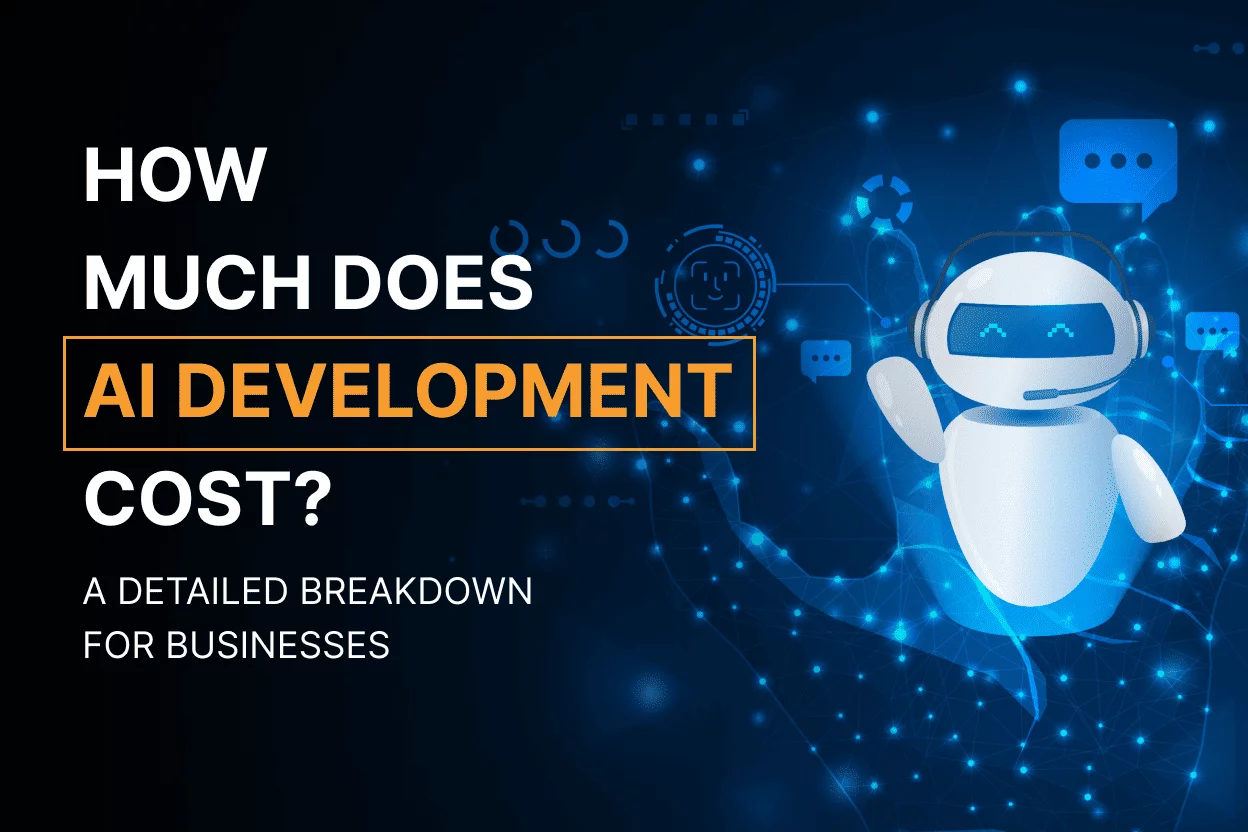Can artificial intelligence really foresee fraud before it happens? As fintech continues to transform at breakneck speed, AI is reshaping everything from risk assessment to customer service. The impact of Artificial Intelligence in fintech is no longer theoretical; it’s driving tangible change across industries right now.
McKinsey estimates that generative AI may unlock $340 billion per year for the banking sector, underscoring its game-changing role in fintech. This article explores 15 powerful, real-world use cases of AI in fintech industry, showing how innovation is driving smarter decisions, faster operations, and stronger financial outcomes.
The Transformative Impact of Artificial Intelligence in Fintech
With the digitization of finance, the volume of data generated through transactions and services has surged. Artificial intelligence has a pivotal role in driving operational efficiency and strengthening business relationships by extracting and presenting actionable insights. Whether assessing risk to refining financial strategies, AI enhances precision and efficiency across the board.
The fintech landscape is shaped by key verticals such as digital banking, payments, personal finance, mobile wallets, investment platforms, and lending services. Integration of AI in fintech offerings enables intelligent apps and machine learning models to simplify complex data processing, automate workflows, and enhance decision-making.
Explore the Top 15 AI in Fintech Use Cases Driving Innovation
Here are the 15 AI in Fintech use cases and examples highlighting the real-world impact of intelligent technologies across banking, payments, investing, and more:
Payments and Transactions
1. Real-Time Fraud Detection
AI/ML models instantly analyze transaction patterns, user behavior, and contextual data to identify suspicious activity. By flagging anomalies as they occur, AI helps financial institutions prevent fraud before damage is done, thereby reducing false positives, safeguarding customer assets, and ensuring secure, seamless digital transactions across banking, payments, and lending platforms.
2. Smart Payment Routing
Leveraging AI, the system dynamically selects the most efficient transaction path. It does so by analyzing factors such as cost, speed, location, and success rates. Optimizing payment flows through live data insights helps reduce processing failures and transaction fees. As a result, banks, merchants, and customers benefit from seamless, cost-effective transactions, especially in cross-border and high-volume payment environments.
Customer Experience
3. AI-Powered Chatbots and Virtual Assistants
AI technologies like Machine learning and NLP enable AI-driven chatbots and virtual assistants to engage in human-like dialogue. They automate customer support, answer queries, manage tasks, and offer personalized recommendations. With their 24/7 availability, they enhance user experience, minimize operational costs, and boost efficiency across industries.
4. Personalized Financial Advice
Smart financial advice isn’t one-size-fits-all; it’s customized to align with your personal goals, earnings, comfort with risk, and where you are in life. By harnessing AI and data, it provides tailored recommendations on budgeting, investing, saving, and retirement planning. Smart tools like Microsoft Copilot enhance this experience by helping users interpret financial data, simulate outcomes, and receive context-aware suggestions in real time. This approach empowers people to make informed decisions, optimize financial outcomes, and build long-term wealth with guidance that evolves as their circumstances change.
Risk and Compliance
5. Credit Scoring with Alternative Data
Instead of relying only on credit reports, AI now leverages alternative data sources to evaluate a borrower’s financial reliability beyond conventional indicators like credit history. The system evaluates non-conventional sources such as utility payments, mobile usage, social media behavior, and transaction patterns. Such an approach allows lenders to identify thin-file or unbanked individuals, expanding access to credit while improving risk prediction and financial inclusion.
6. Automated Regulatory Compliance
By applying AI and NLP, automated compliance systems stay ahead of shifting financial regulations across borders, ensuring consistent adherence. It detects possible violations and flags potential non-compliance, and updates internal policies in real time. This results in the reduction in manual effort and risk, and while ensuring financial institutions stay aligned with global standards, especially in high-stakes areas such as AML, KYC, and data privacy.
Analytics & Forecasting
7. Predictive Risk Modeling
Predictive modeling combines historical insights with real-time analytics, to help organizations anticipate and mitigate financial threats using AI and ML. This enables institutions to anticipate defaults, market volatility, fraud, and operational threats. Identifying patterns and anomalies early on helps with proactive decision-making. Plus, it also strengthens risk mitigation strategies, and enhances regulatory compliance across lending, investing, and insurance domains.
8. Financial Forecasting and Planning
Using AI, financial planning tools learn past data, current trends, and real-time inputs to predict what’s ahead. It allows businesses and individuals to anticipate cash flow, budget effectively, and keep themselves prepared for different scenarios. By automating projections and identifying patterns, AI enhances accuracy, agility, and strategic decision-making across budgeting, investment planning, and resource allocation.
Investing & Trading
9. Algorithmic Trading
AI-powered algorithmic trading enables fast, data-informed decisions as it is beneficial for analyzing market trends and forecasting cost fluctuations. These algorithms identify patterns, optimize timing, and reduce human bias. Extensively used by hedge funds and financial institutions, AI-driven algorithms enhance liquidity, minimize risk, and enable scalable, data-driven investment strategies across global markets.
10. Portfolio Optimization
Through analyzing market trends, investment goals, and asset performance, AI helps construct portfolios for better risk-adjusted returns. Such portfolios are crafted with the focus on maximizing returns while managing risk. t fine-tunes how assets are distributed to optimize returns while controlling downside risk.
Moreover, ML models simulate scenarios, predict trends, and personalize strategies. With this, investors can achieve financial objectives with precision, agility, and data-driven confidence across evolving market conditions.
Core Banking & Operations
11. Document Processing & KYC Automation
An AI-driven approach simplifies customer onboarding by extracting, verifying, and validating identity documents in seconds. By applying OCR, facial recognition, and NLP, fintechs can minimize manual errors to a greater extent, accelerate compliance checks, and enhance user experience. Not only does this improve operational efficiency, but it also ensures regulatory adherence across jurisdictions, thus making onboarding faster, safer, and smarter.
12. Loan Underwriting Automation
Loan underwriting powered by AI enables the evaluation of borrower profiles by analyzing financial data, credit history, and behavioral patterns. The outcome? Reduction in manual efforts, speeding up approvals, and improved risk assessment accuracy. Financial technology harnesses ML to predict default probabilities, personalize loan offers, and ensure fair lending practices, thereby making approvals quicker and more equitable.
Security & Infrastructure
13. Global Threat-Intelligence System
These are AI-driven systems that continuously monitor cyber threats across networks, geographies, and devices. The best thing is they analyze patterns, detect anomalies, and predict attacks in real time, which helps financial institutions proactively secure infrastructure and prevent fraud with faster, smarter threat response.
14. Cybersecurity Threat Detection
Cybersecurity measures get strengthened when backed by AI. Its integration with cybersecurity tools ensures continuous scanning for suspicious activity. It reacts instantly to threats as they surface. AI analyzes behavioral cues and transaction flows, which allows fintechs identify phishing, malware, and fraud attempts before they cause harm. By acting early, fintechs reinforce cybersecurity, reduces risk exposure, and ensures customer trust in an increasingly complex threat landscape.
Strategic Decision Support
15. AI-Driven Business Intelligence
Business Intelligence paired with AI transforms raw financial data into actionable insights. Fintechs can stay ahead of the curve by decoding customer behavior, market shifts, and operational data to predict what’s next and deliver exactly what users need. ML models uncover hidden patterns and automate reporting, which empowers finance teams to stay agile, competitive, and data-informed in a fast-evolving landscape. Ready to develop your fintech solution? Explore here.
The Evolution of Finance in the Age of AI and Automation
The rise of Artificial Intelligence in fintech demands that businesses rethink strategies to stay competitive, data-driven, and customer-centric. This shift from predictive analytics to intelligent workflows is redefining how financial services operate and scale. Intelegain empowers fintechs with cutting-edge AI solutions tailored to this shift, driving innovation, efficiency, and growth. Ready to future-proof your financial platform? Reach out to us and let’s build what’s next, together.
FAQs
AI helps fintech firms make smarter decisions, automate workflows, detect fraud, personalizes services, and drive efficiency across fintech operations.
By automating tasks, reducing errors, and unlocking insights, AI helps fintech firms boost efficiency, cut costs, and drive higher returns.
AI will accelerate financial services, cut costs via automation, enhance fraud detection, and personalize user experiences through GenAI-powered assistants and conversational banking at scale.
Fintech companies use machine learning to automate tasks, predict trends, personalize services, reduce fraud, and optimize financial decision-making.
Gen AI in fintech powers chatbots, automates content, enhances personalization, simplifies onboarding, and improves customer support with natural language interactions.
Build Smarter Financial Solutions with Artificial Intelligence












